Babetta L. Marrone
Bioplastic Design using Multitask Deep Neural Networks
Mar 22, 2022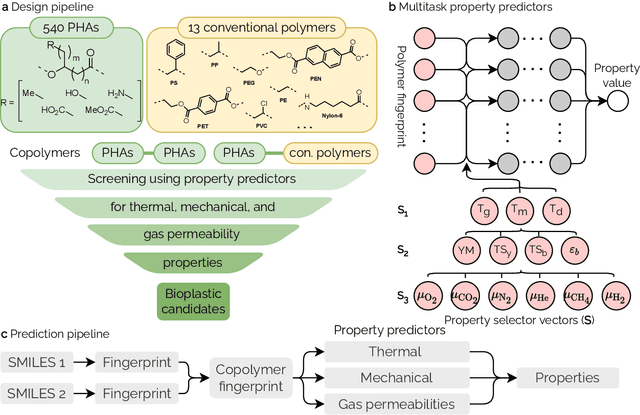
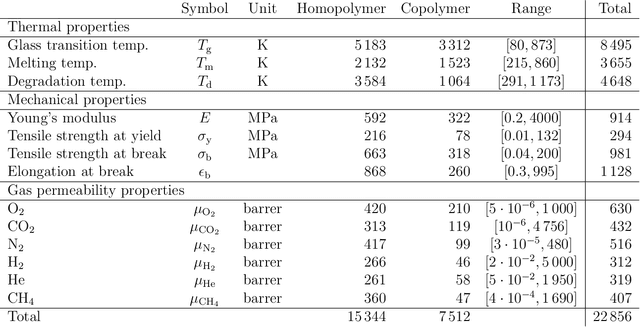
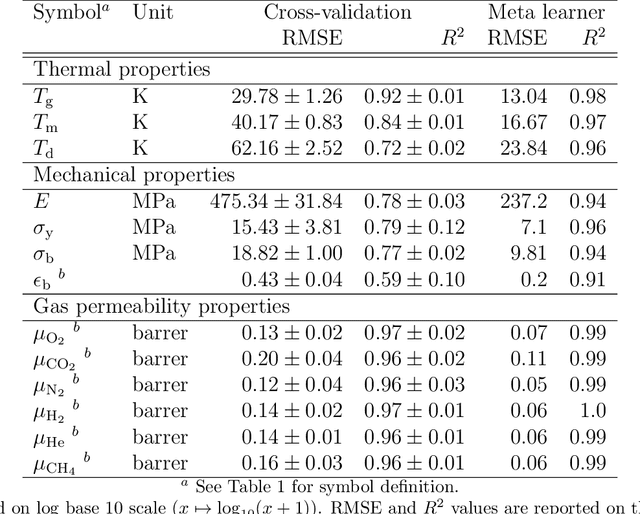
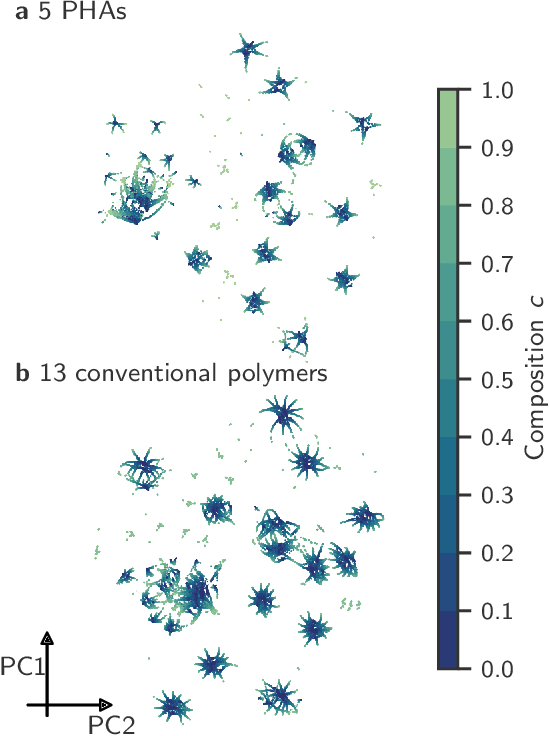
Abstract:Non-degradable plastic waste stays for decades on land and in water, jeopardizing our environment; yet our modern lifestyle and current technologies are impossible to sustain without plastics. Bio-synthesized and biodegradable alternatives such as the polymer family of polyhydroxyalkanoates (PHAs) have the potential to replace large portions of the world's plastic supply with cradle-to-cradle materials, but their chemical complexity and diversity limit traditional resource-intensive experimentation. In this work, we develop multitask deep neural network property predictors using available experimental data for a diverse set of nearly 23000 homo- and copolymer chemistries. Using the predictors, we identify 14 PHA-based bioplastics from a search space of almost 1.4 million candidates which could serve as potential replacements for seven petroleum-based commodity plastics that account for 75% of the world's yearly plastic production. We discuss possible synthesis routes for these identified promising materials. The developed multitask polymer property predictors are made available as a part of the Polymer Genome project at https://PolymerGenome.org.
Learning from learning machines: a new generation of AI technology to meet the needs of science
Nov 27, 2021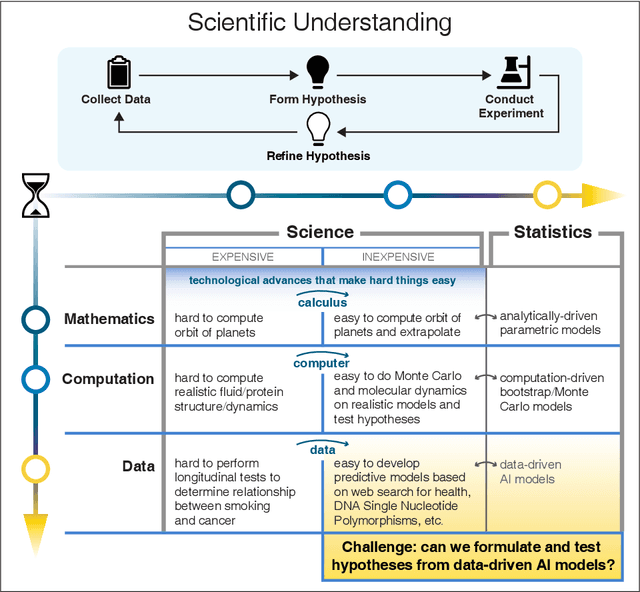

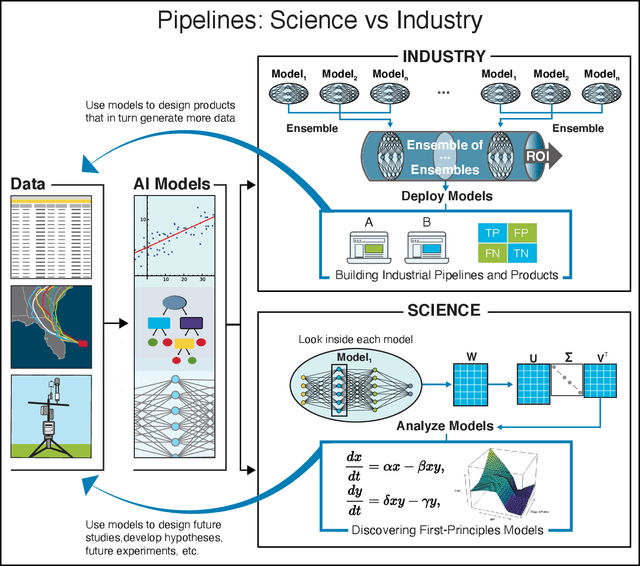
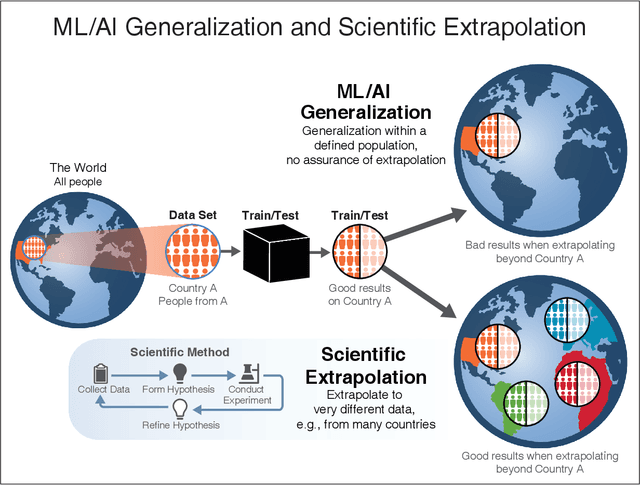
Abstract:We outline emerging opportunities and challenges to enhance the utility of AI for scientific discovery. The distinct goals of AI for industry versus the goals of AI for science create tension between identifying patterns in data versus discovering patterns in the world from data. If we address the fundamental challenges associated with "bridging the gap" between domain-driven scientific models and data-driven AI learning machines, then we expect that these AI models can transform hypothesis generation, scientific discovery, and the scientific process itself.
 Add to Chrome
Add to Chrome Add to Firefox
Add to Firefox Add to Edge
Add to Edge